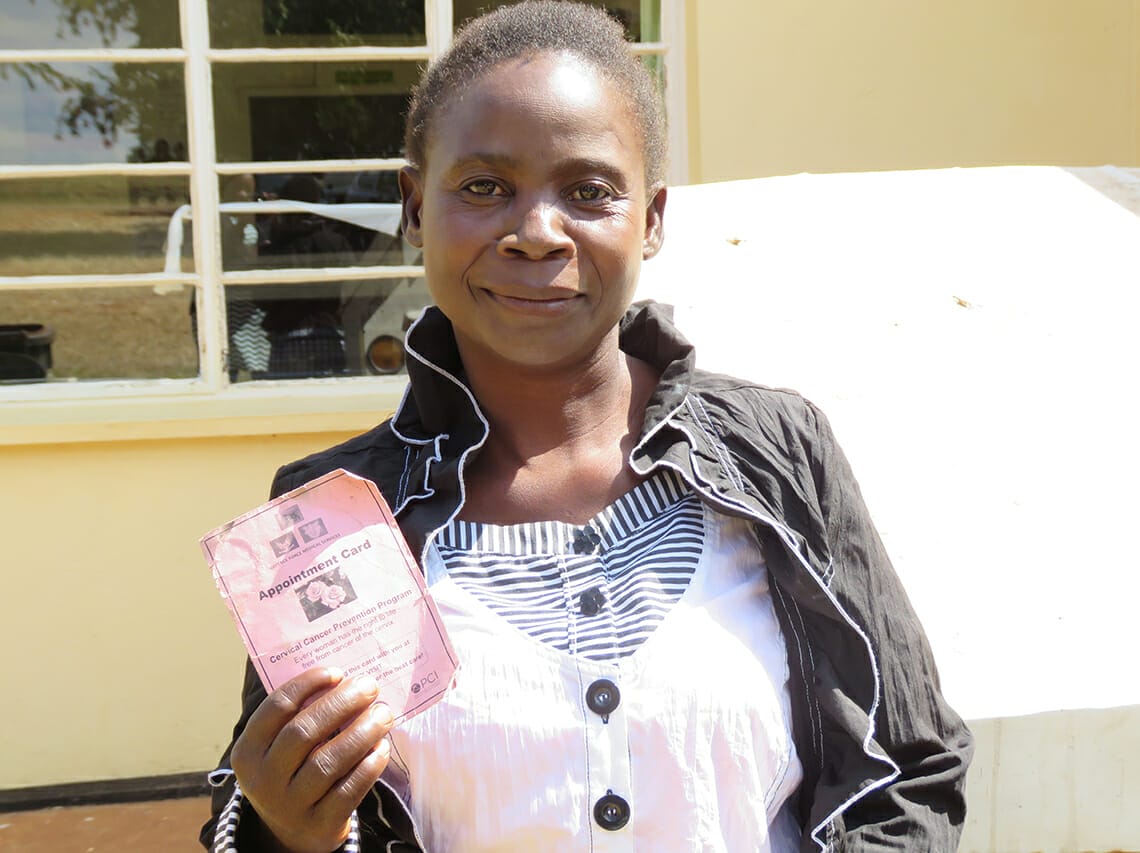News > Blog
Zambian Mother-Turned-Activist Joins Fight Against Cervical Cancer
Published 07/15/2019 by Global Communities

Globally, one woman dies of cervical cancer every two minutes. In Zambia, Project Concern International (PCI) is working to put an end to these tragic and untimely fates.
Since 2011, with support from the President’s Emergency Plan for AIDS Relief (PEPFAR), PCI has been able to provide life-saving screenings and treatment to more than 25,000 women in some of the most remote regions of Zambia. For many, this is the first time they have had access to preventative care.
“Cervical cancer screening is not routinely provided in our health system, especially in remote and rural areas,” said Mildred Kalufyanya, PCI Zambia’s Cervical Cancer Screening and Treatment Coordinator. “Because of PCI’s mobile screening program, more and more women are getting timely cervical cancer screening services and living a life free from cervical cancer.”
Meet one of them.
My name is Ezelina Phiri, a 50-year-old woman from Game and Fisheries, a small community in Chipata District. I live with my husband and six of our children. We had 11 children in total, but we lost five before they reached the age of 5 years old. The majority died from malaria, while one died at 21 from a random illness, leaving behind two children. Our community is mostly occupied by small scale farmers, and we spend most of our time in the field trying to make ends meet.
The first time I heard of cervical cancer screening was in 2012, when PCI and the Zambian Defence Force came to Gondar Barracks to screen women from the military camp. I was working as a community volunteer, which I still am today.
When I heard the cervical cancer messages through the sensitization, I made sure I was among the first people to be screened. I lay there anxiously waiting to be told the results. The screening nurse showed me the picture and told me that I had a tiny lesion on the cervix that, if untreated, would become cancerous. My heart sunk after hearing that news.
I asked what was supposed to be done now that I had the lesion. The nurse comforted me and told me they had medicine they would use to cure it. My husband was very supportive and encouraged me to get treated.
A few months later, I went back for review, only to be informed that the lesion was still there. I was then referred for LEEP (Loop Electrosurgical Excision Procedure). A year later, I went back and finally heard the news I had always wished for, “You are fine. Your cervix is healthy.”
None of my family members have died from cervical cancer. The only woman I knew who had it was a lady from my community. She screened too late, and her cancer had already spread to too many parts of her body. Her death encouraged many women from the community to screen and avoid the dreadful disease at all costs.
Ever since I screened and learned that I am well, I have become an activist, referring women to the clinic for proper screening. It is my passion to encourage women to put their health first, and it is my mission to ensure every woman I know is screened and is free of cervical cancer.
Interview conducted by Chinyama Mizinga and Mildred Kalufyanya.




